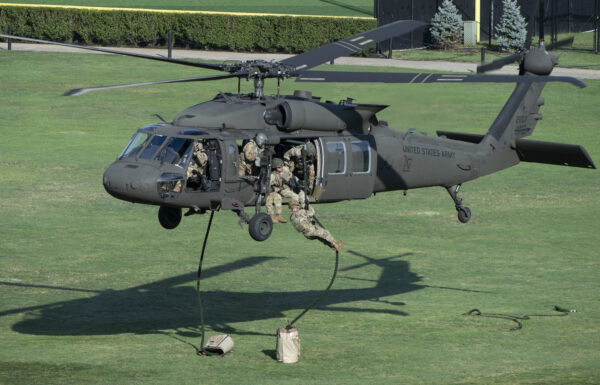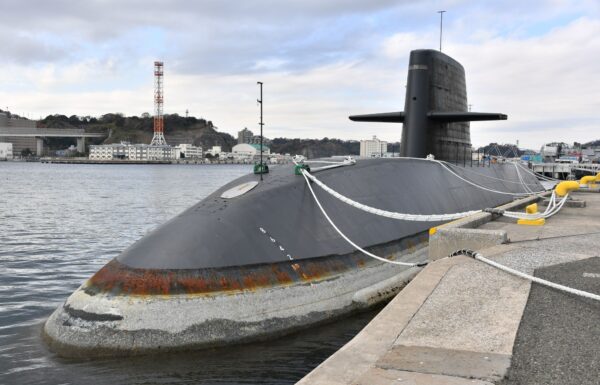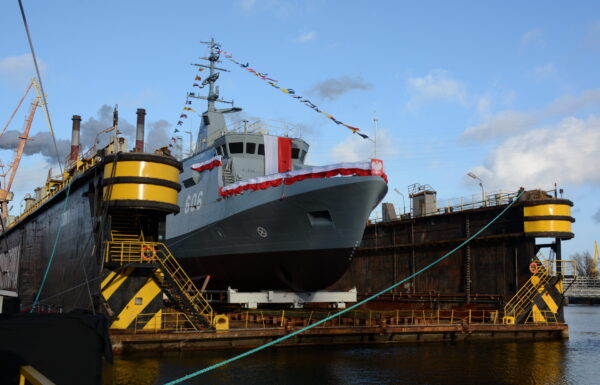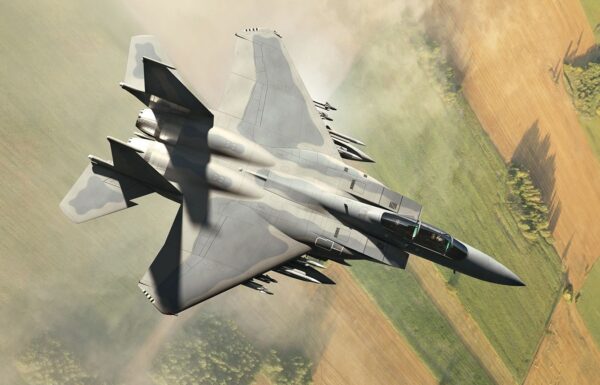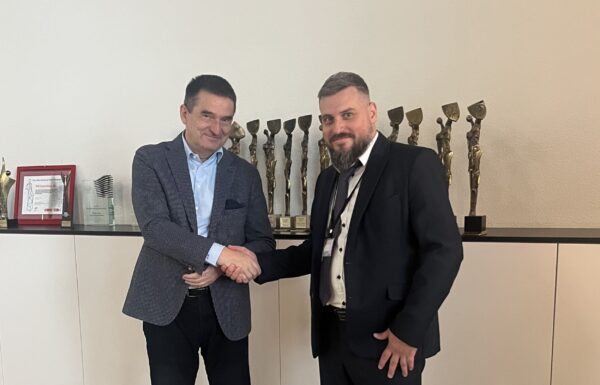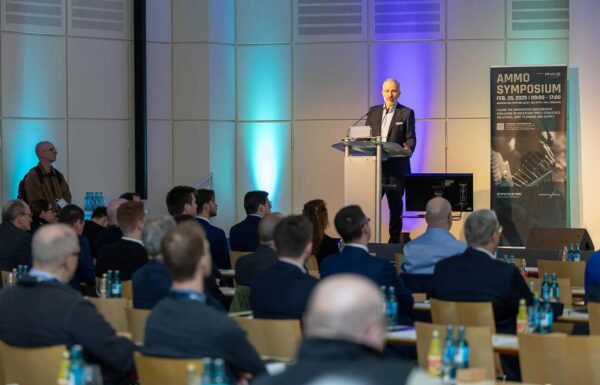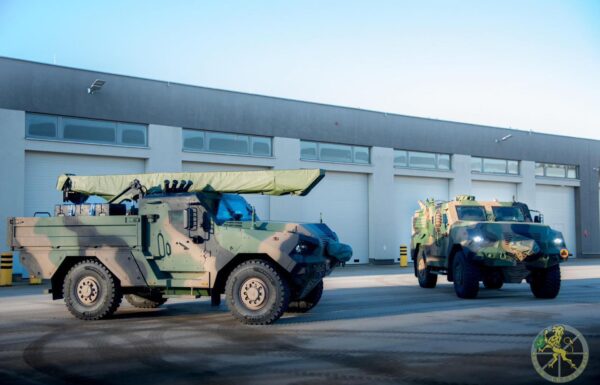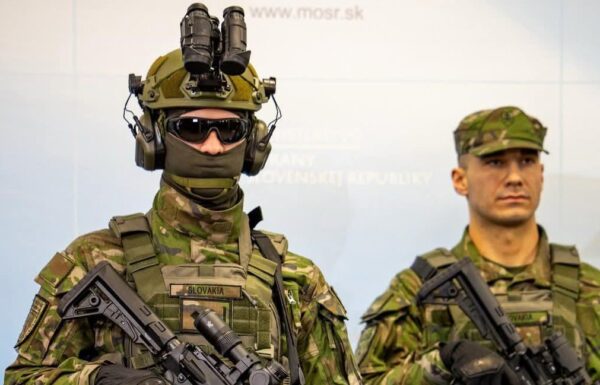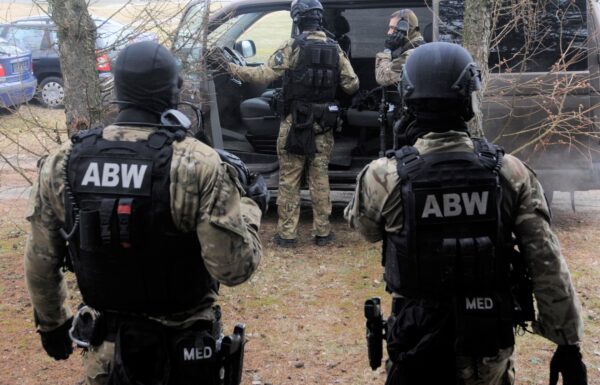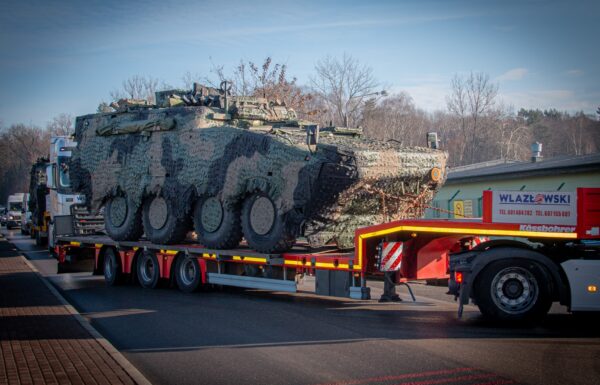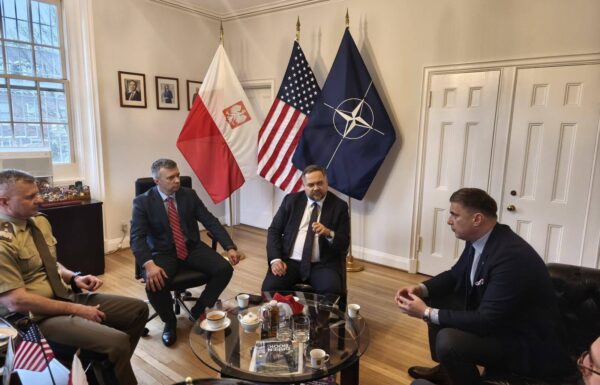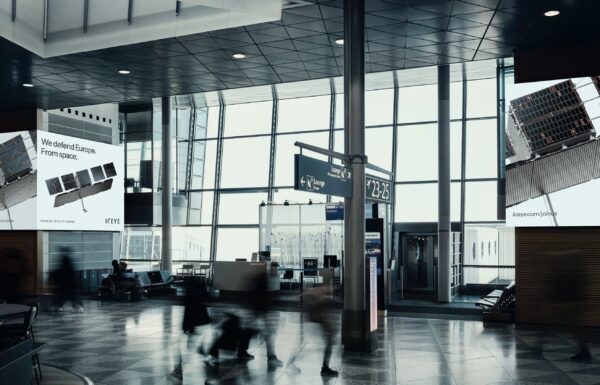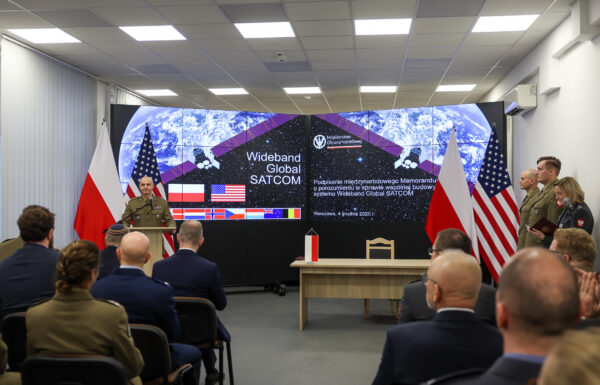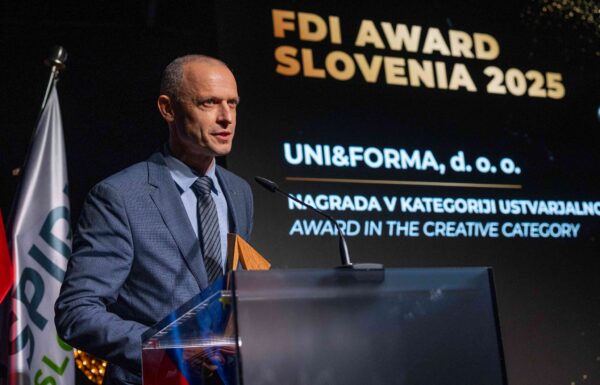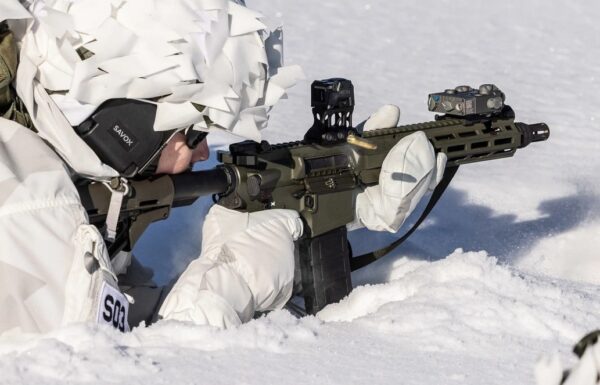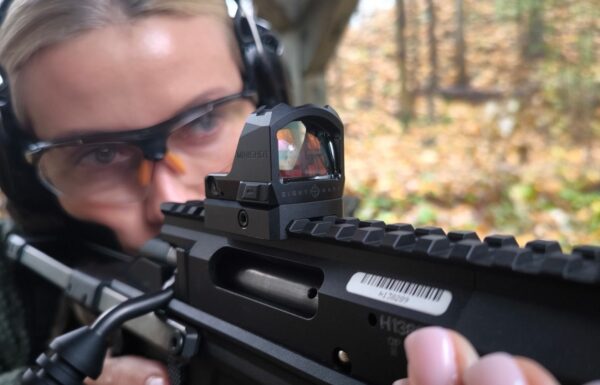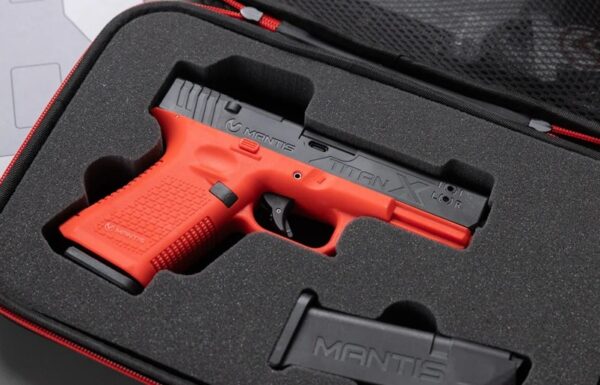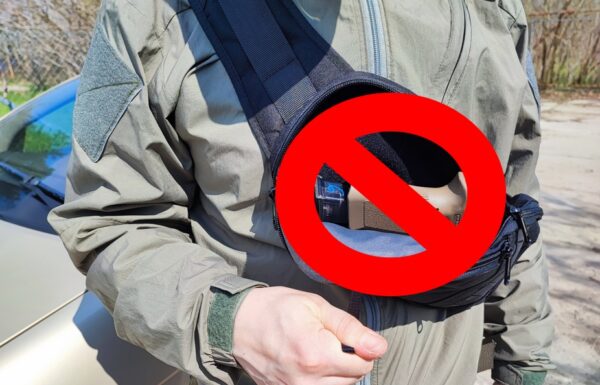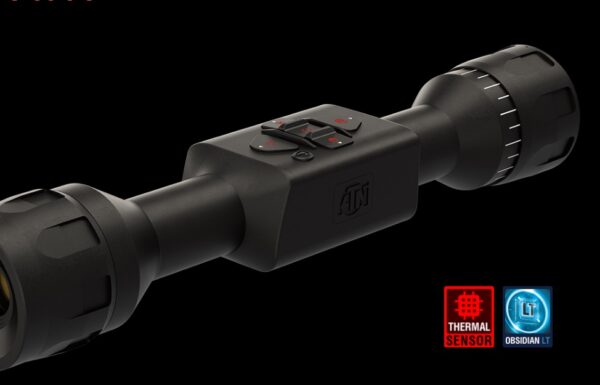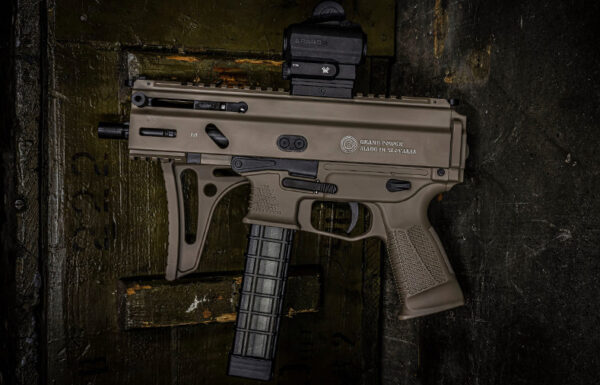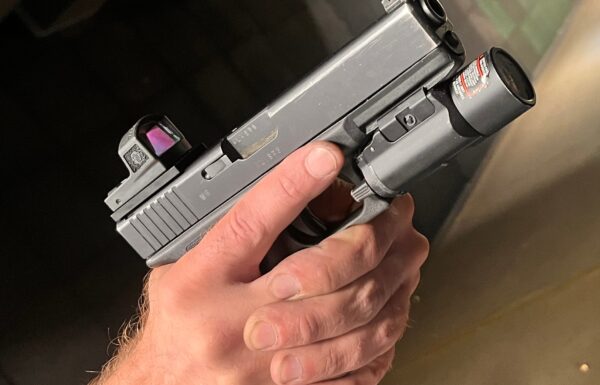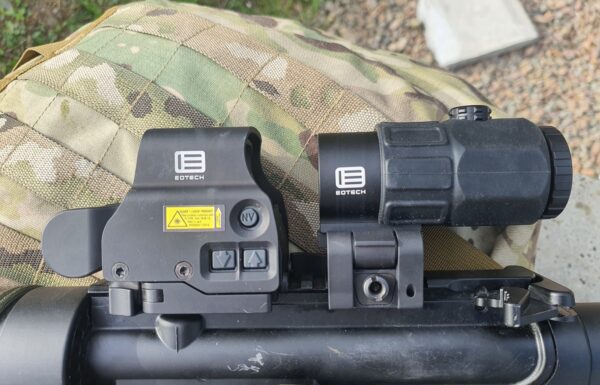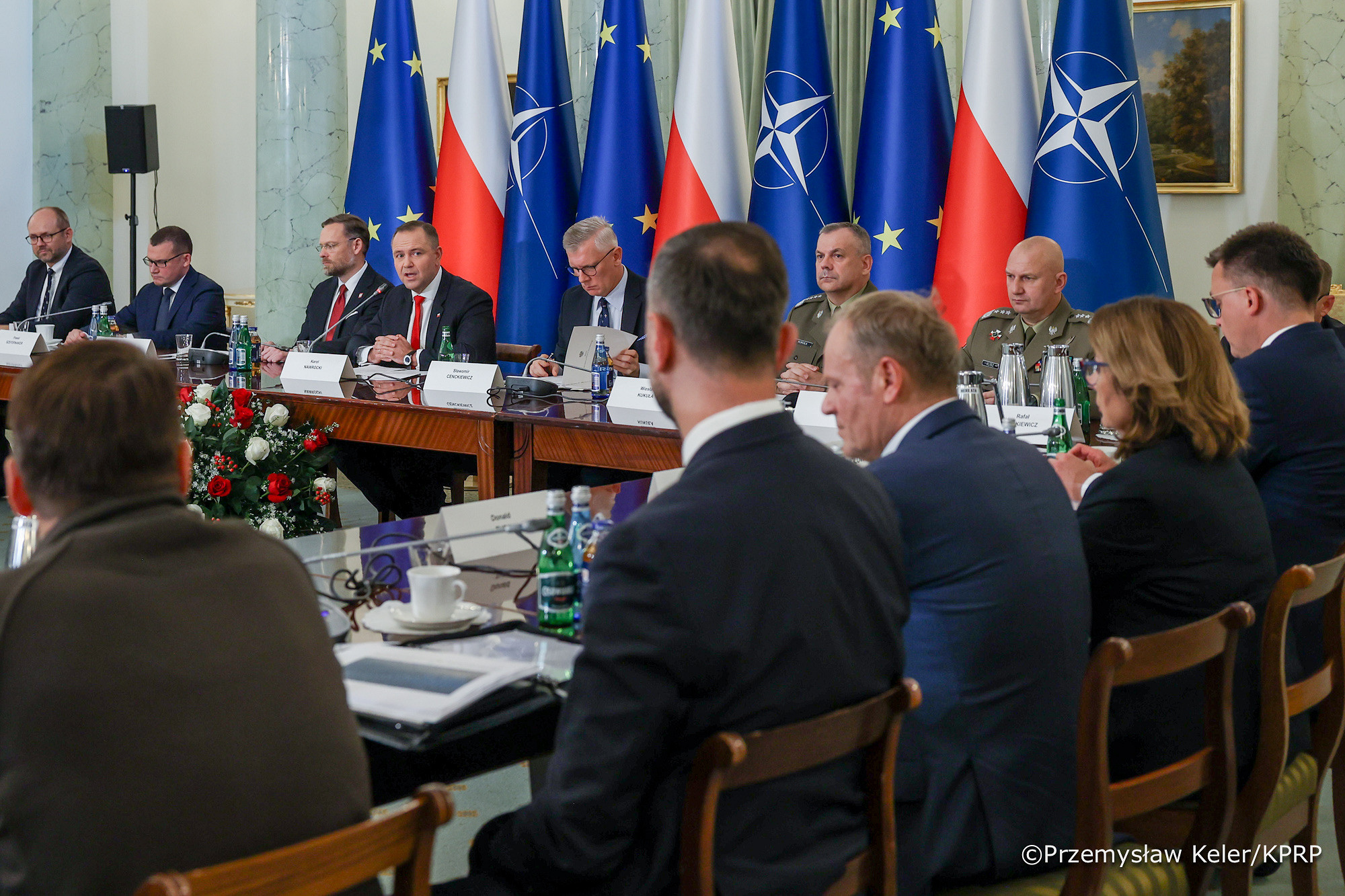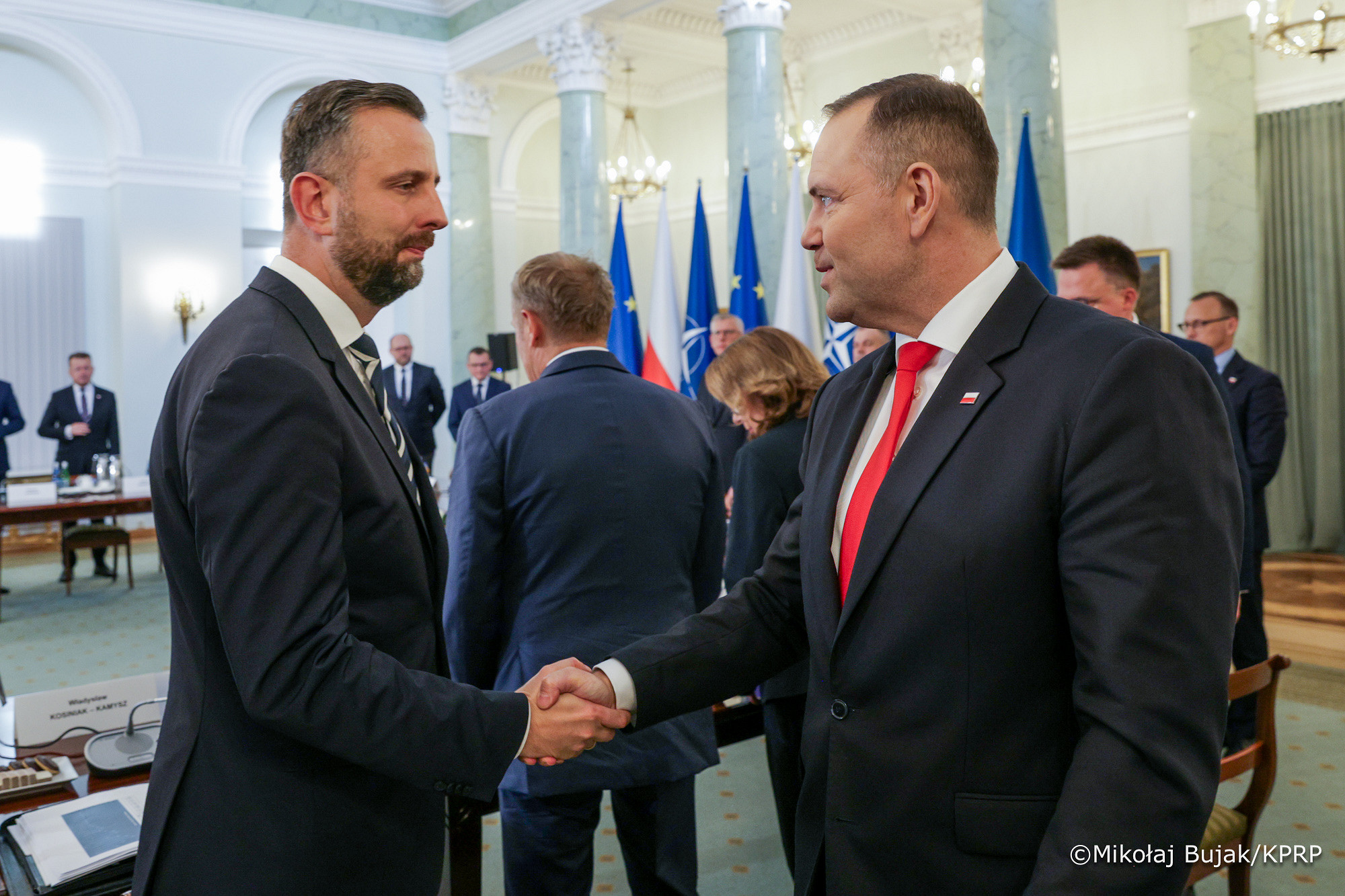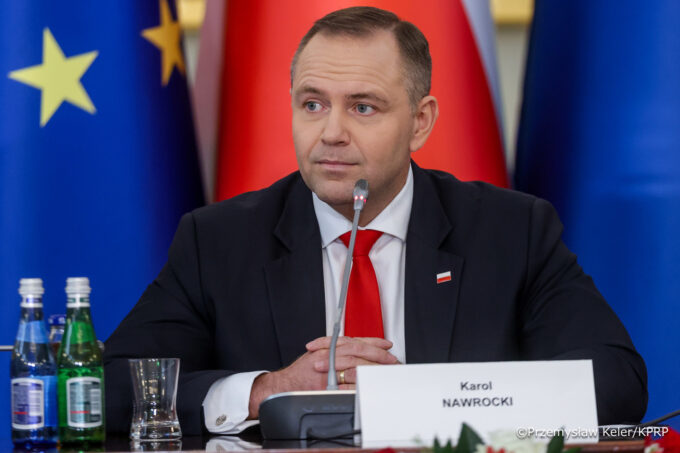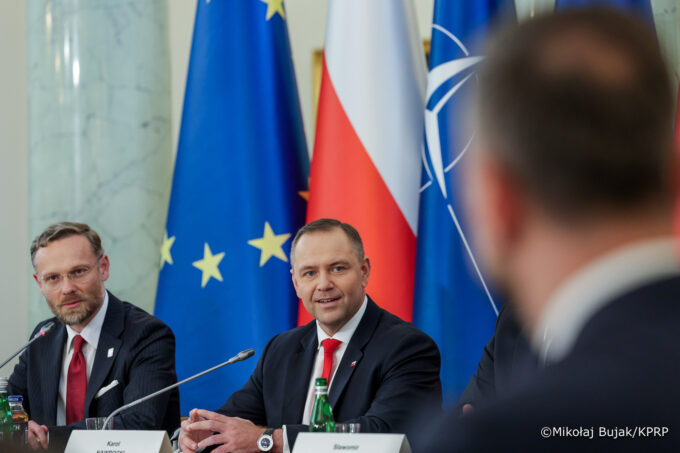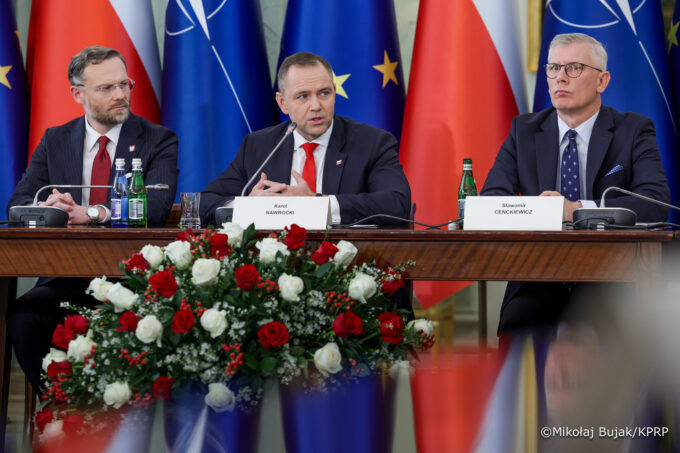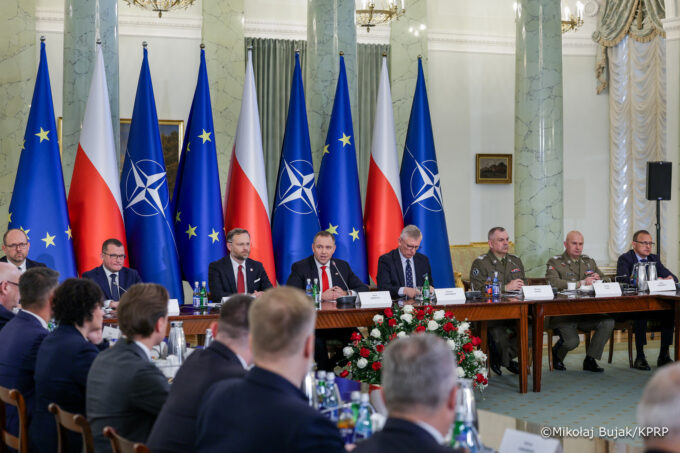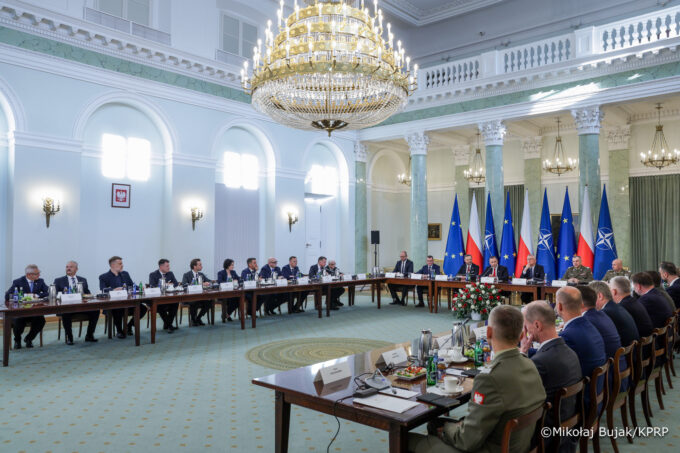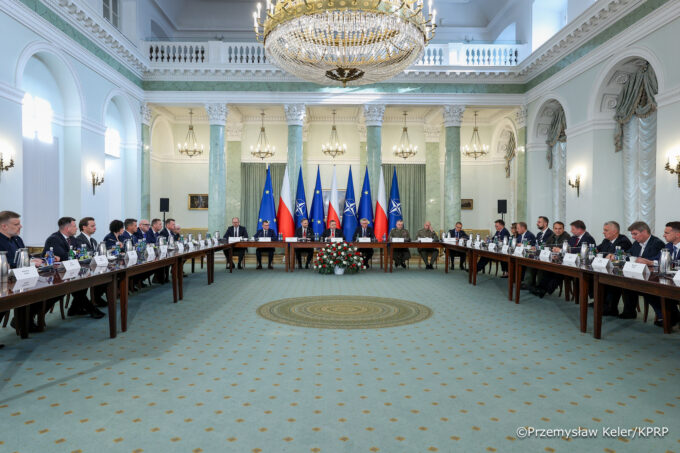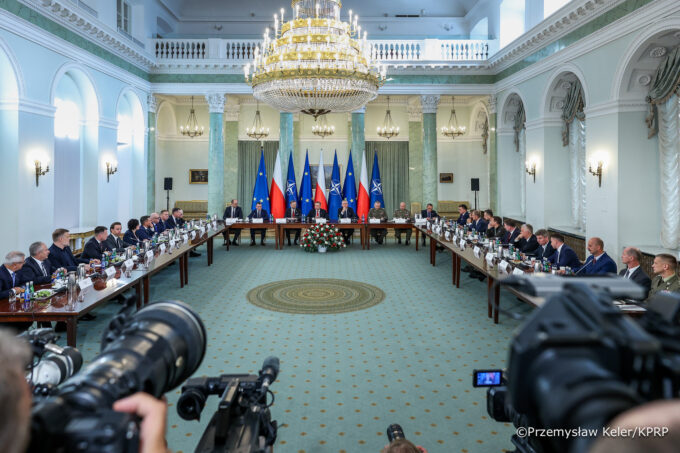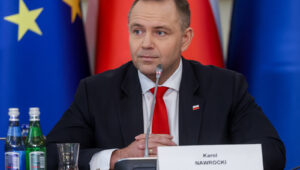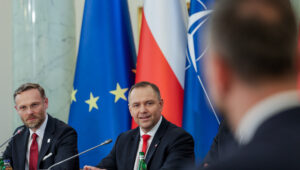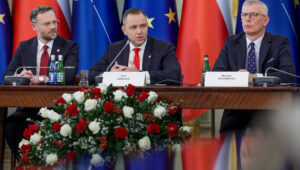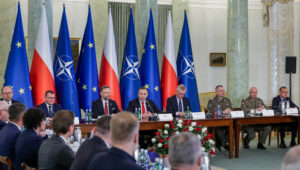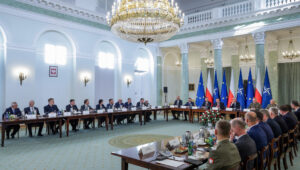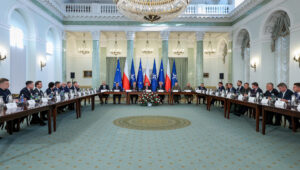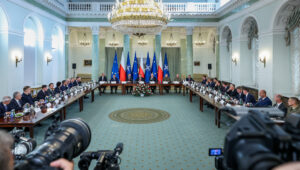On Thursday, September 11, 2025, a meeting of the National Security Council was held at the Presidential Palace, convened by President Karol Nawrocki. The session focused on national security after Russian drones violated Polish airspace in the early hours of September 10.
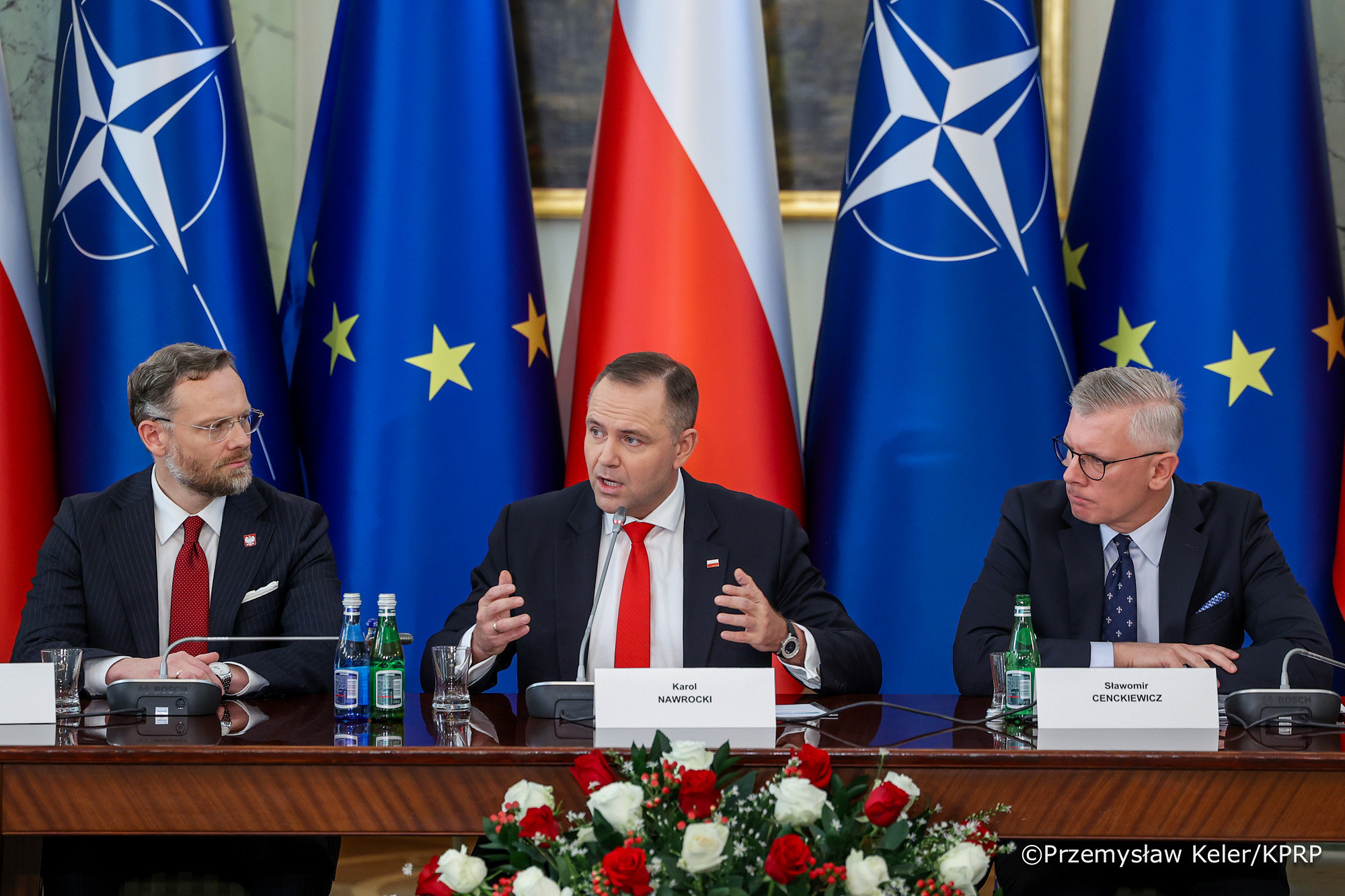 Photo: Przemysław Keler, Chancellery Of The President Of Poland
Photo: Przemysław Keler, Chancellery Of The President Of Poland
During his opening speech at the meeting, the President of Poland emphasized that for the past four years Poland has been exposed to hybrid attacks. These have taken place through assaults on the country’s eastern border, destabilization in the Baltic Sea, violations of airspace, and disinformation in the public sphere.
“The Russian drone attack of September 10, 2025, was – as you are all well aware, and as the public now also knows – a test imposed on us by the Russian Federation,” Karol Nawrocki stressed.
According to the President, the test was aimed at assessing the resilience of Polish society, the stability of political institutions, as well as allied capabilities and reaction skills.
“I have a strong impression that this test (…) we, as Poland, have passed. At the same time, however, there are many things we must accomplish, particularly in the field of Poland’s security and defense, and this Council is meant to serve precisely such solutions,” he argued.
President Karol Nawrocki pointed out that the primary duty of the Polish authorities is above all to ensure the protection of the civilian population. “And that is what happened – the procedures worked, and this was possible primarily thanks to the command staff of the Polish Armed Forces,” he emphasized.
Recalling the course of yesterday’s events, Karol Nawrocki stressed that he remained in constant contact with representatives of the Polish authorities, the command of the Polish Armed Forces, allies, and NATO Secretary General Mark Rutte.
He also added that Poland passed this test as a community thanks to the prudence and pro-state attitude of the opposition in the Polish parliament, whose readiness was directed, if at all, toward constructive criticism rather than attacks on the government and the president.
“We must all, as a political class (…) draw conclusions from what has happened and ask ourselves concrete questions: what could we have done better, and what should our further actions look like in building not only Poland’s military resilience but also its civilian resilience,” the President of Poland stated.
In Karol Nawrocki’s assessment, “Poland must increase investment in air defense and missile defense, both through the purchase of new systems and the development of domestic technologies.” He also highlighted the need to strengthen civilian resilience. “Of course, defense is not only about the military, but also about effective alarm systems, the construction of shelters, public information, and the training of citizens,” he added.
>Full Speech<<<
Participants of the National Security Council meeting:
- Karol Nawrocki – President of the Republic of Poland
- Szymon Hołownia – Marshal of the Sejm, Chairman of the Poland 2050 Party
- Małgorzata Kidawa-Błońska – Marshal of the Senate
- Donald Tusk – Prime Minister, Chairman of the Civic Platform Party
- Władysław Kosiniak-Kamysz – Deputy Prime Minister, Minister of National Defense, Chairman of the Polish People’s Party
- Radosław Sikorski – Deputy Prime Minister, Minister of Foreign Affairs
- Marcin Kierwiński – Minister of Interior and Administration
- Tomasz Siemoniak – Minister, Member of the Council of Ministers – Coordinator of Special Services
- Jan Grabiec – Minister, Member of the Council of Ministers, Head of the Chancellery of the Prime Minister, Chairman of the Committee for Public Benefit
- Jarosław Kaczyński – Chairman of the Law and Justice Party
- Mariusz Błaszczak – Chairman of the Law and Justice Parliamentary Club
- Zbigniew Konwiński – Chairman of the Civic Coalition Parliamentary Club – Civic Platform, Modern, Polish Initiative, Greens
- Piotr Zgorzelski – Deputy Marshal of the Sejm, Chairman of the Polish People’s Party Parliamentary Club – Third Way
- Paweł Śliz – Chairman of the Poland 2050 Parliamentary Club – Third Way
- Anna Maria Żukowska – Chairwoman of the Left Parliamentary Club
- Sławomir Mentzen – Chairman of the New Hope Party
- Krzysztof Bosak – Deputy Marshal of the Sejm, Member of the Confederation Leadership Council, Chairman of the National Movement
- Adrian Zandberg – Co-Chairman of Razem Party
- Marek Jakubiak – Chairman of the Free Republicans Parliamentary Circle
- Włodzimierz Skalik – Chairman of the Confederation of the Polish Crown Parliamentary Circle
- Dr. habil. Sławomir Cenckiewicz – Secretary of the National Security Council, Secretary of State at the National Security Bureau, Head of the National Security Bureau
- Zbigniew Bogucki – Head of the Chancellery of the President of the Republic of Poland
- Paweł Szefernaker – Secretary of State at the Chancellery of the President – Head of the Cabinet of the President of the Republic of Poland
- Marcin Przydacz – Secretary of State at the Chancellery of the President – Head of the International Policy Bureau
- Rafał Leśkiewicz – Undersecretary of State at the Chancellery of the President – Spokesman of the President of the Republic of Poland
- Gen. Wiesław Kukuła – Chief of the General Staff of the Polish Armed Forces
- Lt. Gen. Maciej Klisz – Operational Commander of the Armed Forces
- Brig. Gen. (ret.) Mirosław Bryś – Deputy Head of the National Security Bureau
- Brig. Gen. (ret.) Andrzej Kowalski – Deputy Head of the National Security Bureau
- Maj. Gen. Adam Rzeczkowski – Director of the Department for Security over the Armed Forces, National Security Bureau
Pursuant to Article 135 of the Constitution of the Republic of Poland, the National Security Council is an advisory body to the President of the Republic in matters of the internal and external security of the state.
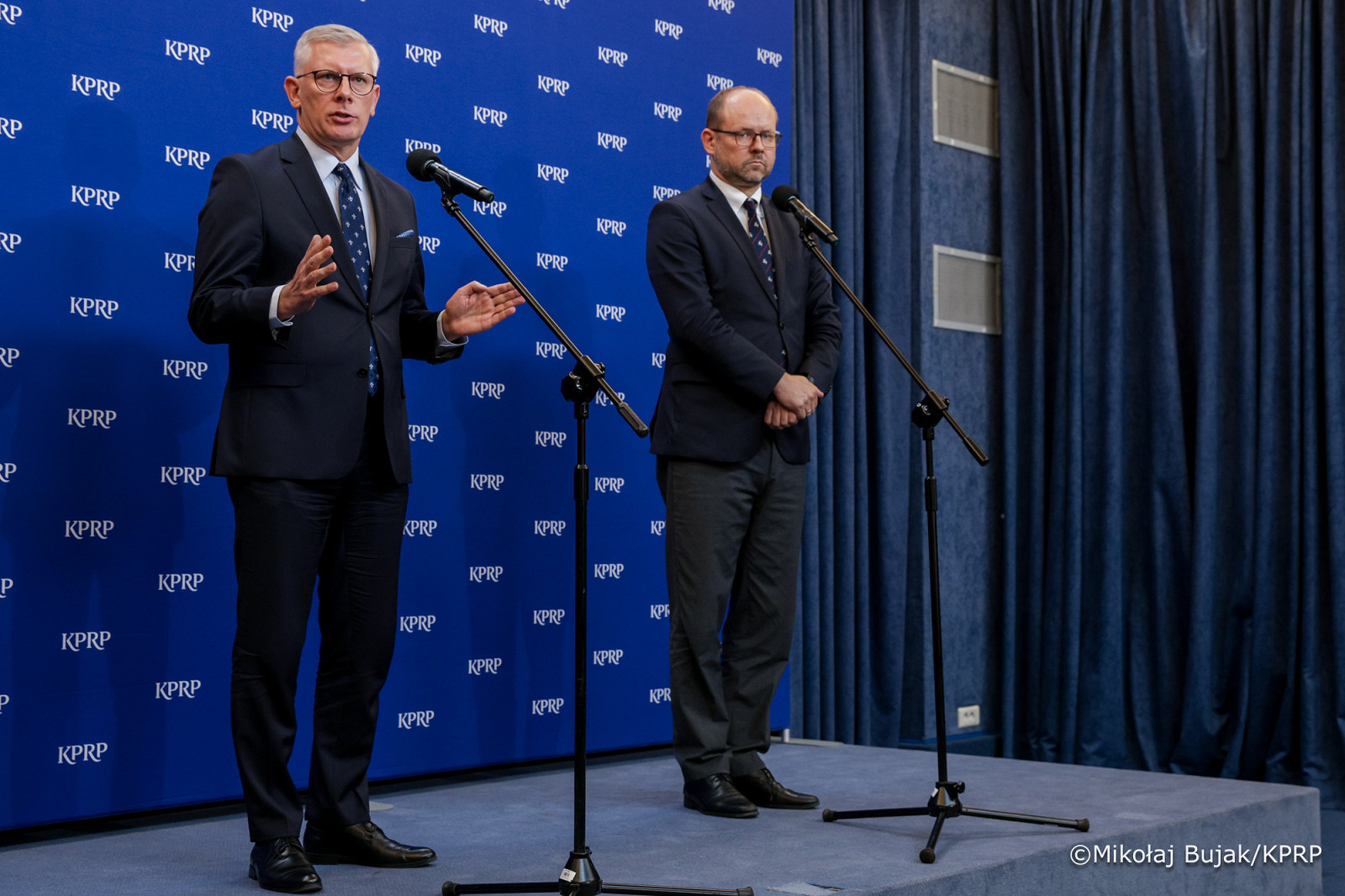 Photo: Mikołaj Bujak, Chancellery Of The President Of Poland
Photo: Mikołaj Bujak, Chancellery Of The President Of Poland
After the National Security Council meeting, Head of the Presidential International Policy Bureau Marcin Przydacz and Head of the National Security Bureau Sławomir Cenckiewicz met with the media. Minister Sławomir Cenckiewicz stated that it had been an excellent discussion, during which false information circulating in the public domain was corrected, above all, regarding who owned the drones and who was responsible for their intrusion into Polish airspace.
“This was a severe incident threatening Poland’s security,” said Marcin Przydacz, Head of the International Policy Bureau, pointing out that fully verified information confirmed “the drones were Russian, originating from Russia and approaching from the Russian direction, even if they crossed into Polish territory from Belarus or Ukraine.”
He added that the Russian Federation failed to achieve its intended objectives: to create divisions within NATO or within Polish society. “On the contrary, we demonstrated solidarity, unity, and effectiveness,” the Minister assessed.
The previous morning, in response to multiple violations of Polish airspace by drones, President Karol Nawrocki convened a meeting at the National Security Bureau attended by Prime Minister Donald Tusk and Chief of the General Staff Wiesław Kukuła. In the evening, he held a telephone conversation with U.S. President Donald Trump. “The conversation is part of a series of consultations I am conducting with our allies. Today’s talks confirmed allied unity,” the President of Poland reported.
Yesterday, before noon, Karol Nawrocki paid a visit to the 31st Tactical Air Base in Poznań–Krzesiny. “I thank you for the fact that we have passed the test of solidarity and readiness to respond to the provocations and challenges of the Russian Federation,” he said, addressing Polish pilots and those of allied nations.
See also:


